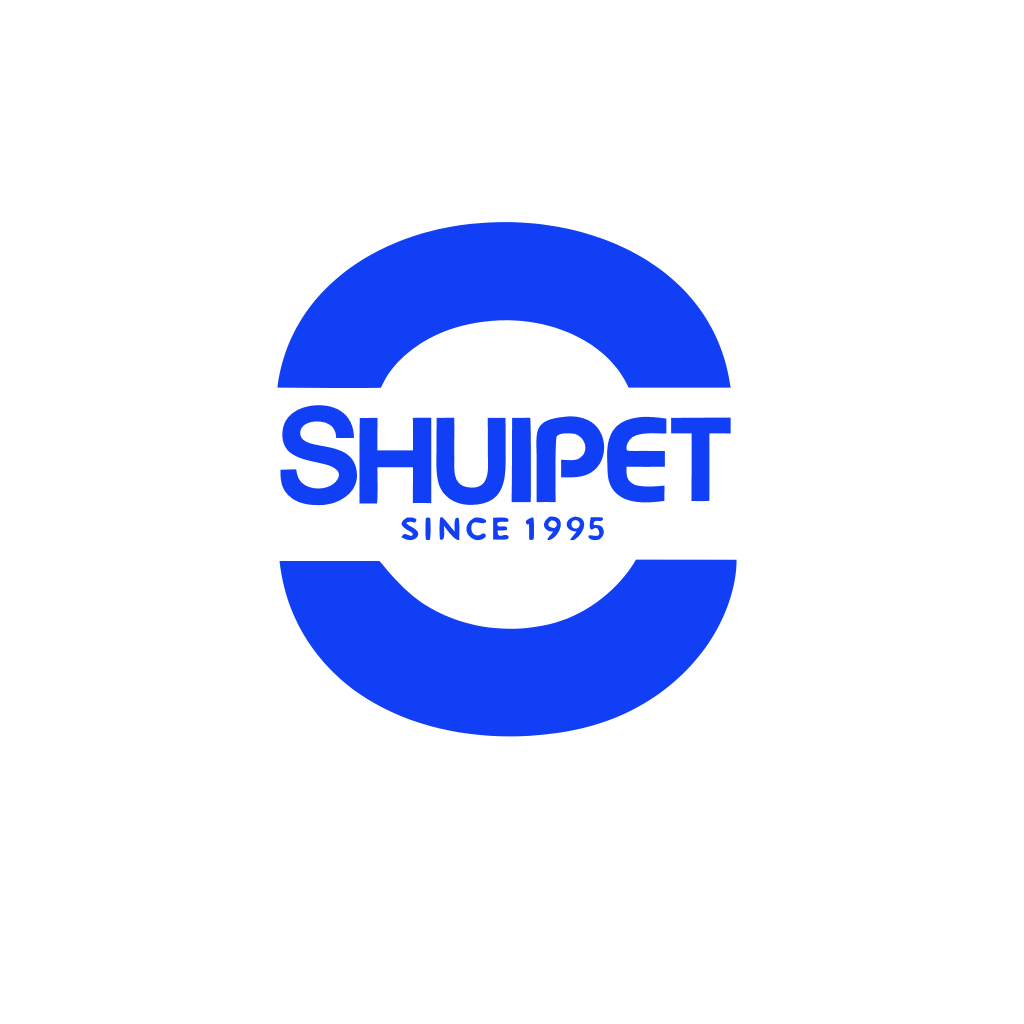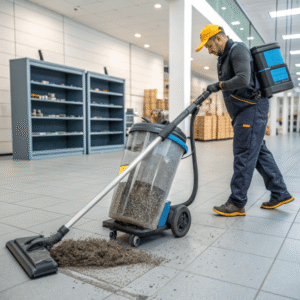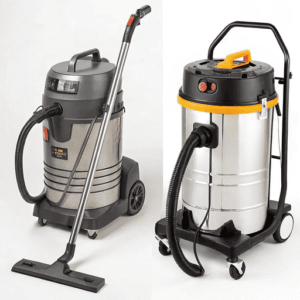Why Your Factory Needs a Heavy Duty Industrial Vacuum?
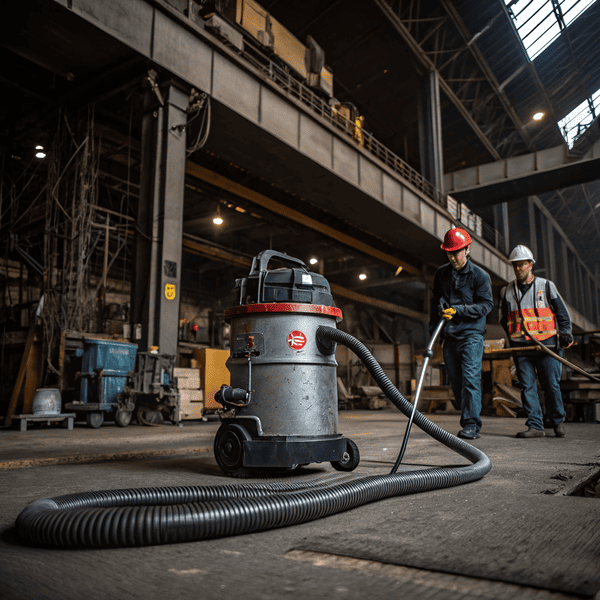
Factories generateFactories generate dust, scraps, and spills every day. Without the right cleaning equipment[^1], those messes pile up fast and cause big problems.
[^1]: Explore this link to discover essential cleaning equipment that can help maintain a safe and efficient factory environment.
every day. Without the right cleaning equipment, those messes pile up fast and cause big problems.
A heavy duty industrial vacuum is key for keeping factory floors clean, safe, and efficient. These machines deal well with large debris, dust, and hazardous waste, saving your team time and money.
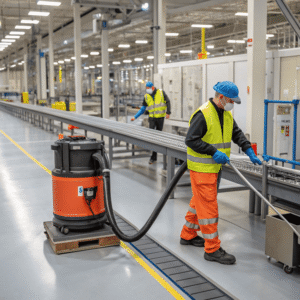
I remember my early days managing the cleanup at a mold shop. On busy days, we used regular vacuums and wasted hours on clogs and downtime. Switching to industrial vacuums made our entire workplace safer, helped machines run better, and kept us focused on production instead of cleaning up after every shift.
What are industrial vacuums used for?
Factories use industrial vacuums for many jobs. What types of messes do these machines handle, and why are they important?
Industrial vacuums clean up heavy debris, fine dust, liquids, hazardous waste, and even chips from machines. They're made for rough jobs that wear out standard vacuums quickly.
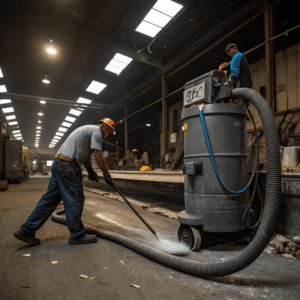
In my factory, industrial vacuums cleaned up everything the molding process threw at us—plastic granules, metal filings, oils, coolant spills, and thick dust. We used them to clear away scrap from CNC machines and vacuum up dangerous powders during mold repair. When we spilled chemicals by accident, We used them to clear away scrap from CNC machines[^1] and vacuum up dangerous powders during mold repair. When we spilled chemicals by accident, industrial vacuums with special filters drained and contained the mess with no harm to people or equipment. In wood shops, they remove sawdust fast so machines don’t clog. Every type of manufacturing generates different messes, and these vacuums cover all situations
[^1]: Discover insights on CNC machines and their role in modern manufacturing, boosting precision and productivity.
with special filters drained and contained the mess with no harm to people or equipment. In wood shops, they remove sawdust fast so machines don’t clog. Every type of manufacturing generates different messes, and these vacuums cover all situations. Here’s how:
| Application | Types of Mess Handled | Key Benefit |
|---|---|---|
| Metalworking | Chips, filings, coolant | Prevents equipment jams |
| Plastics | Pellets, powders | Keeps air clear |
| Woodworking | Sawdust, scraps | Protects tools |
| Chemicals/Pharma | Toxic/flammable dust | Safety, compliance |
| General factory | Dust, spills, liquids | Fast, efficient clean |
Why Your Factory Needs a Heavy Duty Industrial Vacuum?
Every factory has cleaning needs. Why choose heavy duty industrial vacuums over other solutions?
A heavy duty industrial vacuum protects workers, equipment, and product quality by quickly removing dangerous waste, fine dust, and large debris. This directly boosts safety and efficiency.

I saw firsthand how a heavy duty vacuum turned our shop around. We used to lose hours with old brooms and basic cleaners. After investing in a high-power vacuum, our air stayed clear, After investing in a high-power vacuum[^1], our air stayed clear, machines ran longer, and nobody was tripping on cables, trash, or spills.
[^1]: Discover how a high-power vacuum can enhance air quality and improve workplace safety.
, and nobody was tripping on cables, trash, or spills. These vacuums come with strong motors, big filters, and bodies that resist chemicals and rough use. That means even the toughest mess—from metal shards to chemicals—is cleared safely. Clean floors reduce accidents and help meet safety rules. Well-maintained machines also mean fewer breakdowns, saving money. Teams work better in clean spaces, so even morale goes up. Most important, you never worry about surprise inspections or compliance issues—everything stays under control.
| Advantage | Real Impact |
|---|---|
| Worker Safety | Fewer slips and injuries |
| Machine Maintenance | Less downtime, longer lifespans |
| Product Quality | No contamination from dirt |
| Regulatory Compliance | Easier safety audits |
| Morale/Workflow | Better atmosphere, less stress |
What is the difference between commercial and industrial vacuums?
Many factories try commercial vacuums first, but why do they end up switching to industrial models?
Commercial vacuums are for lighter mess, used in offices or hotels. Industrial vacuums are built tough, handling heavy debris, hazardous waste, and long work shifts daily.
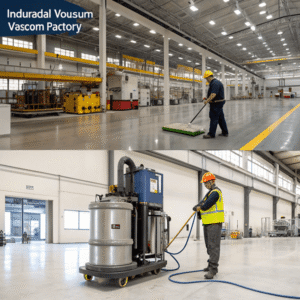
We learned this lesson quickly in my shop. Commercial vacuums cleaned our offices well—carpet dust and crumbs were no problem. But they failed in the workshop, overheating with chips and powder. Industrial vacuums work with rough surfaces, absorb wet and dry spills, and keep going strong all day. They come with Industrial vacuums[^1] work with rough surfaces, absorb wet and dry spills, and keep going strong all day. They come with powerful motors and specialized filters for fine dust, chemicals, and even explosive bits
[^1]: Explore this link to understand how Industrial vacuums enhance efficiency and safety in various work environments.
and specialized filters for fine dust, chemicals, and even explosive bits. Commercial vacuums are lighter, quieter, and better for quick cleaning of small areas. If your factory makes a mess with heavy, hazardous or bulky materials, only industrial vacuums will keep up. Here are the big differences:
| Feature | Commercial Vacuum | Industrial Vacuum |
|---|---|---|
| Suction Power | Low to moderate | High, powerful |
| Application Area | Offices, hotels | Factories, workshops |
| Debris Type | Dust, crumbs | Chips, liquids, chemicals |
| Filter Capacity | Basic | Advanced, specialty |
| Durability | Standard | Rugged, chemical-proof |
| Duty Cycle | Short | Long shifts |
Conclusion
Heavy duty industrial vacuums create safer, cleaner factories. Picking the right machine helps your team stay efficient, protect equipment, and follow safety rules, every day.
